
 |
Floor Plan |  |
The Dennis Wheatley 'Museum' - Dennis Wheatley’s Writing Technique
An experiment with dictation
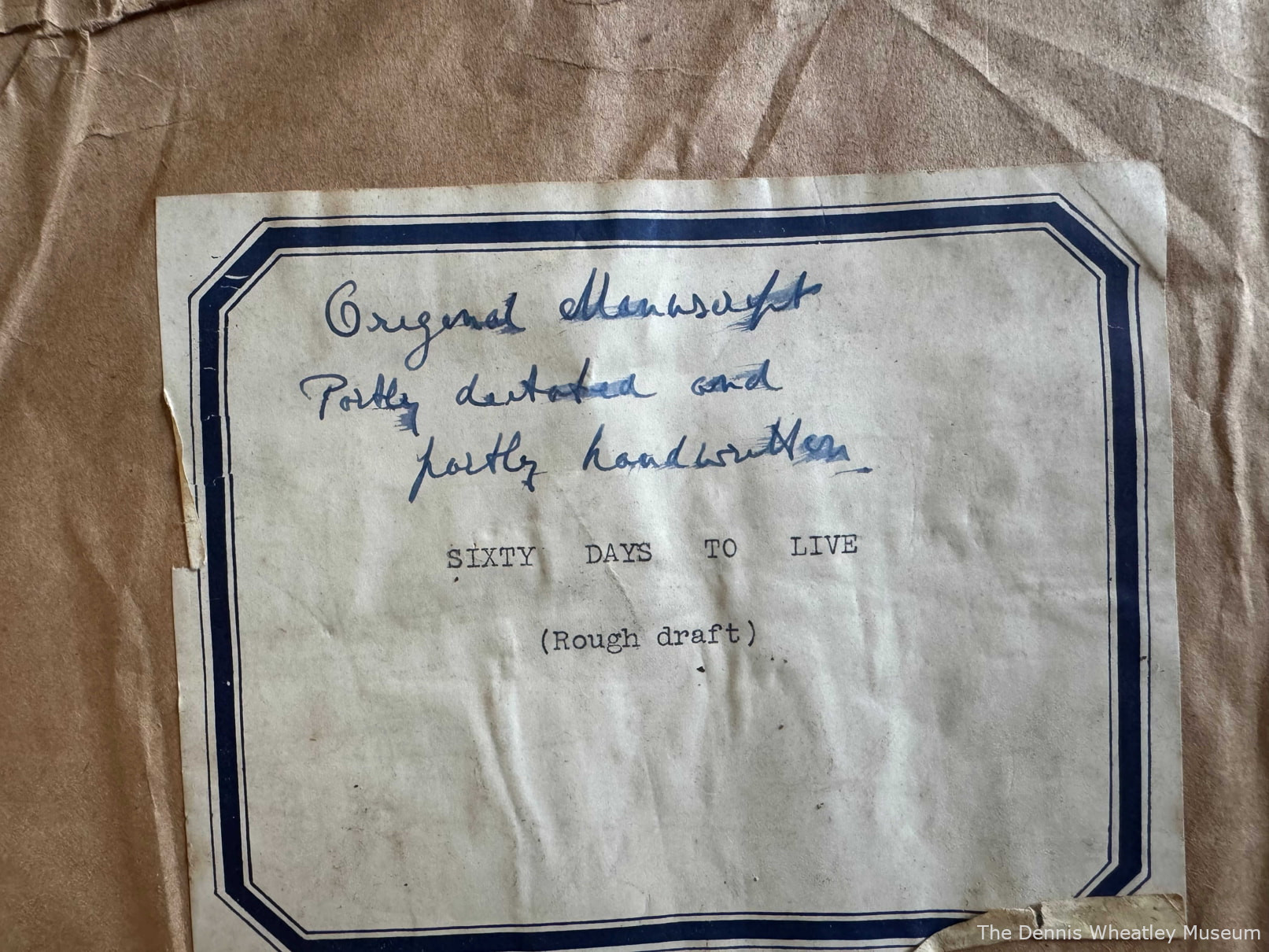
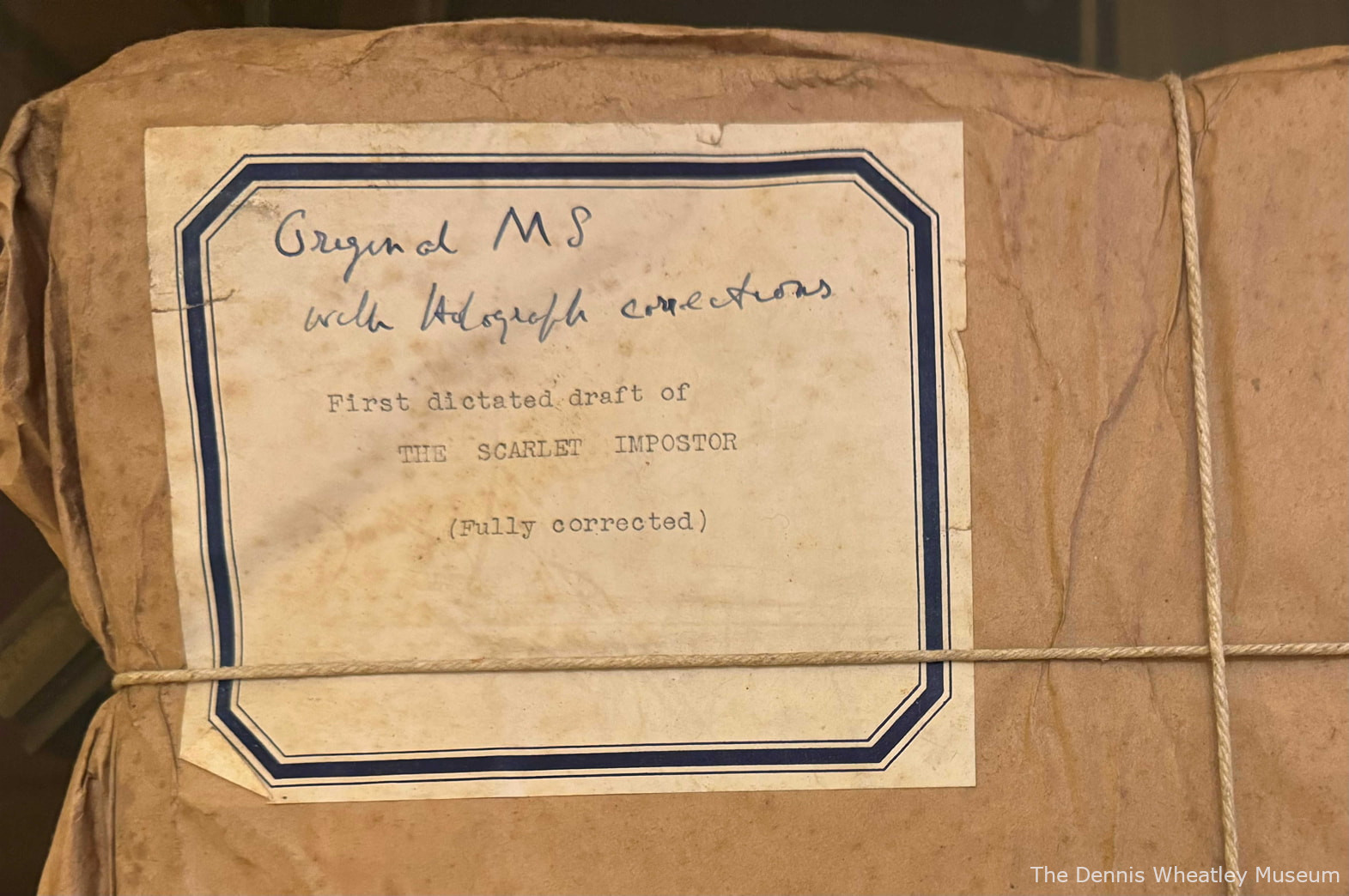
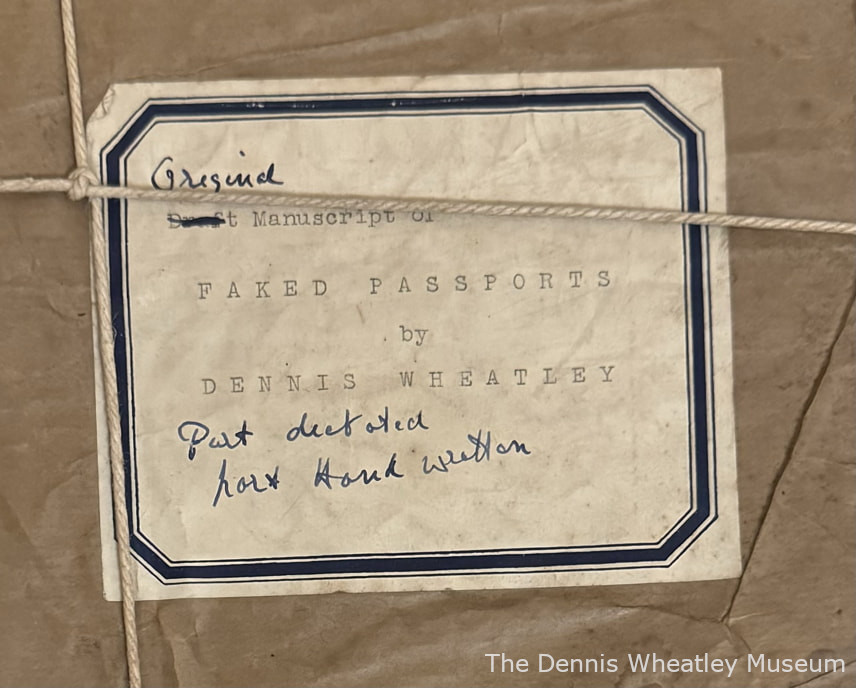
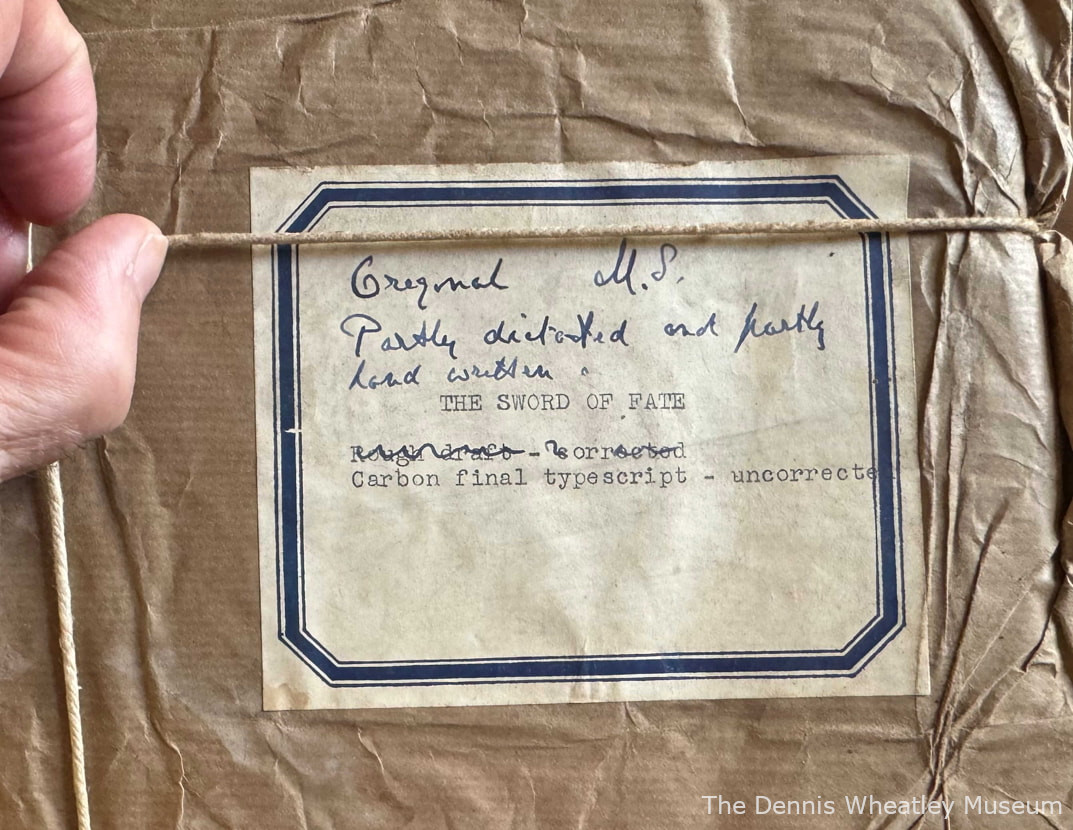
The labels on the packaging of a selection of DW's part-dictated novels
Click on the images to enlarge
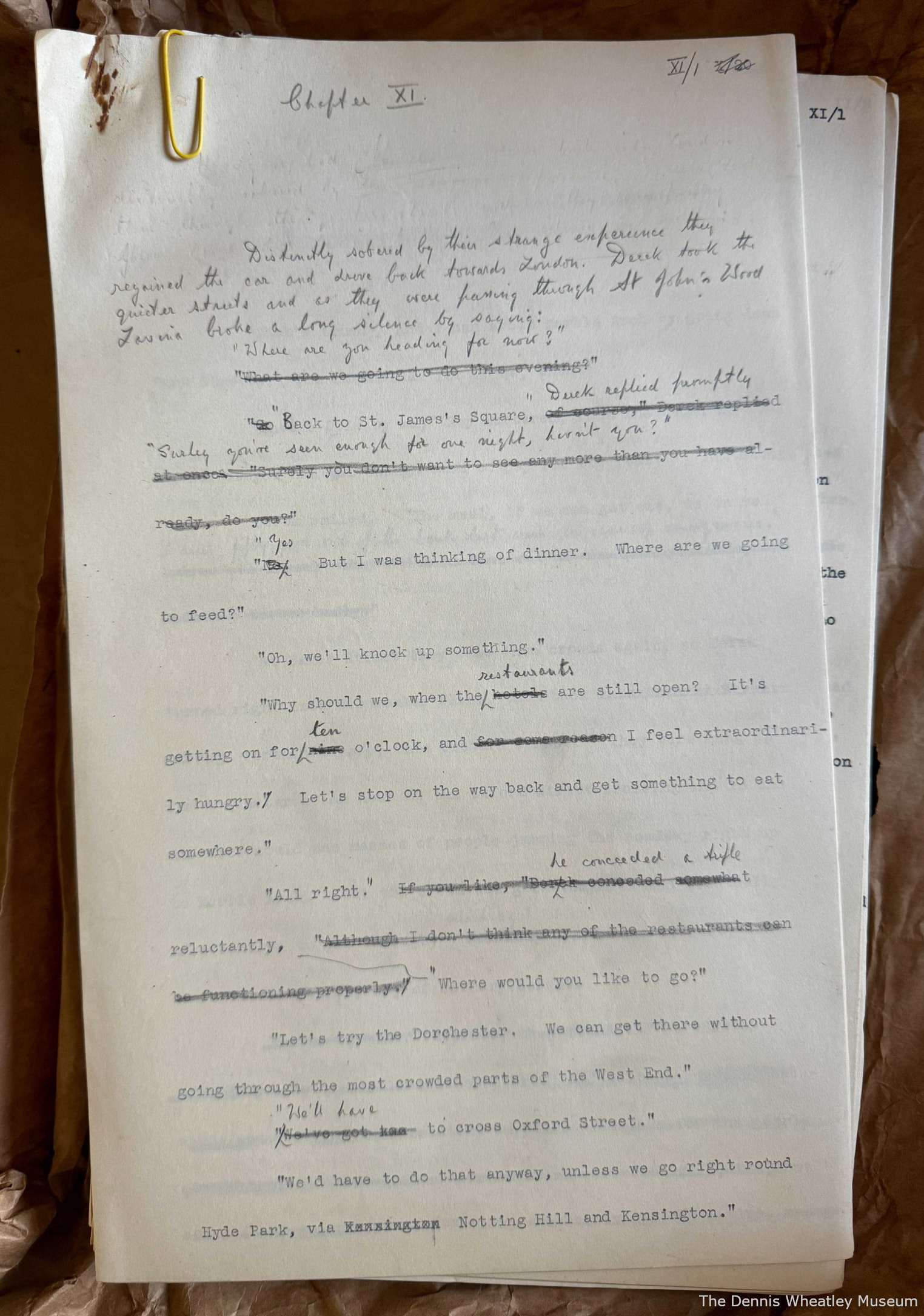
And a page from a dictated novel's annotated typescript, this page from 'Sixty Days To Live'
Click on the images to enlarge
Between 1939 (starting with 'Sixty Days To Live') and 1942 (ending with 'V For Vengeance' or 'The Sword Of Fate' 1), once the synopsis had been prepared, DW experimented with dictation instead of producing the previous pencil and ink drafts, and then moved straight on to correcting the typescript.
Why he did this is unknown. One possibility is that it was simply one of his experiments; another is that it was forced on him by a shortage of paper. In either event, it must have been useful when DW wrote his early wartime Gregory Sallust novels, because it would have reduced the production time at a stage when DW wanted his readers to be reading Gregory's adventures as close as possible to the time when the real life events in their backgrounds had taken place.
Whatever the reason - and while DW produced some very good books using this method - he was clearly not comfortable with it, because when he wrote his first post-war book, The Man Who Missed The War', he reverted to writing the entire manuscript in pencil, and this remained his modus operandi for the rest of his working life.
A clue to the reason that DW abandoned dictation and went back to writing in pencil is perhaps to be found in his autobiography:
'If an author dictates, his mind goes too fast to get the best out of situations. When the typescript comes to him he must write additions on the top of the typed sheet, or even on the back of the page. He tends to make his additions as short as possible, so fails to get the best out of a thrilling episode. By writing in longhand, too, he can see at a glance what he has put down and, if he has used a multi-syllable word twice in one paragraph, change one for another expression.'
Note 1: The Manuscript for 'V for Vengeance' is missing but it is likely that this also was dictated.
| References: | 'Drink and Ink' page 251 |
| Provenance: | Private Collections |

